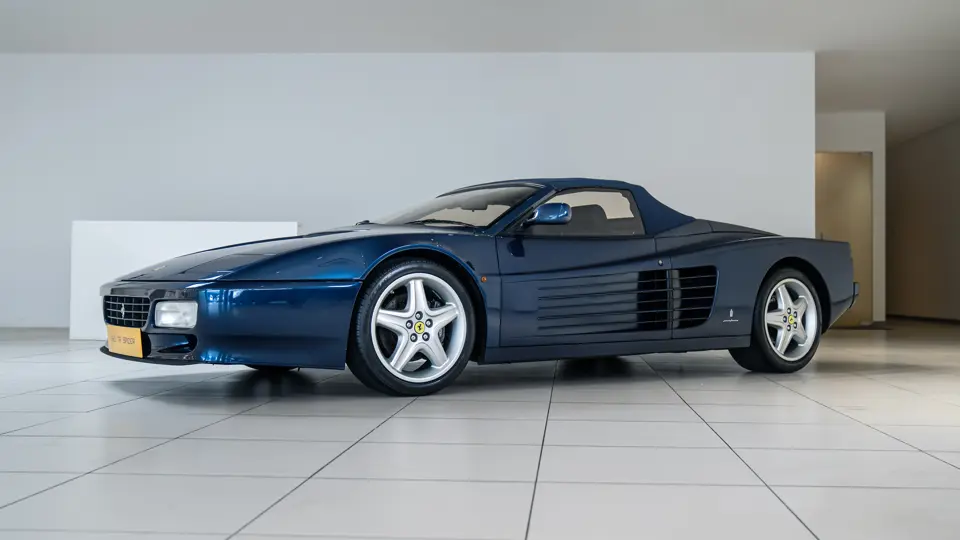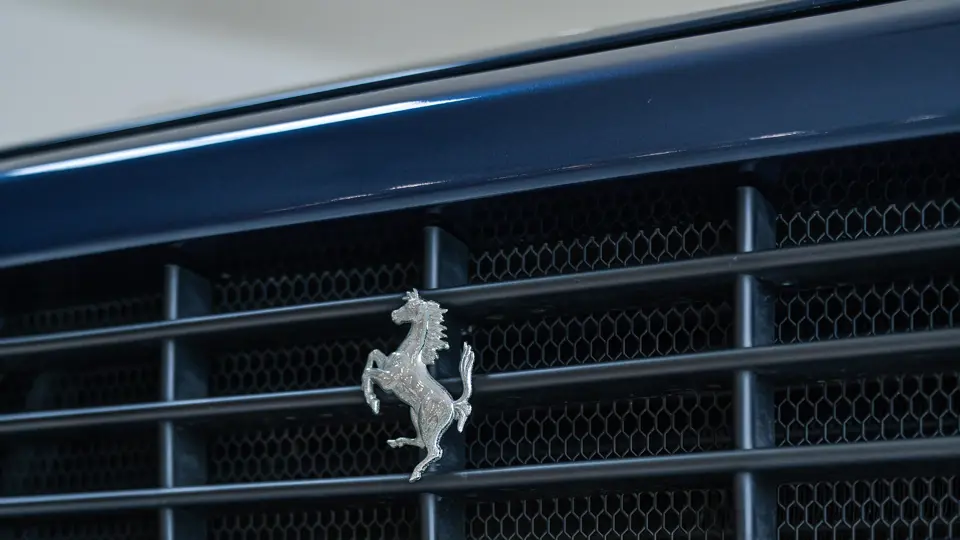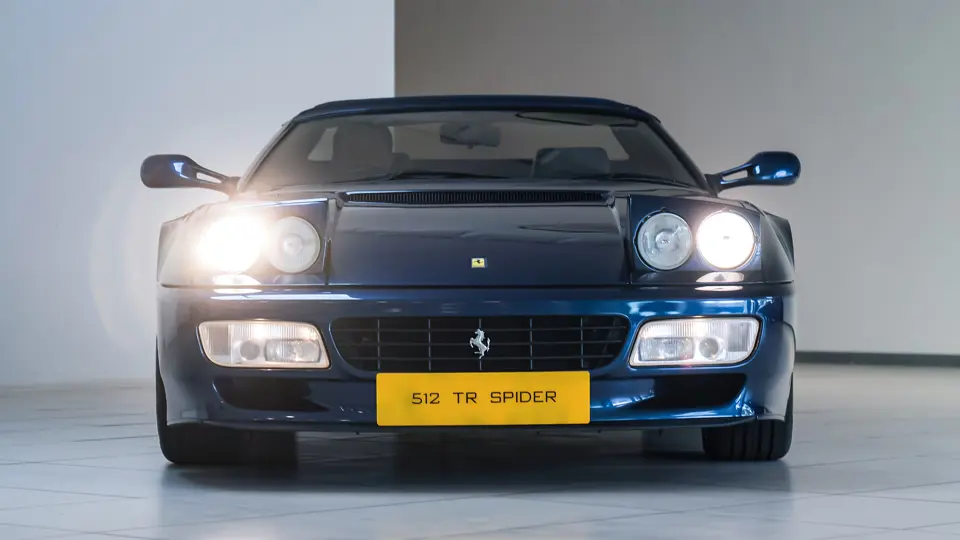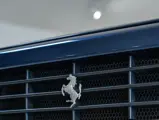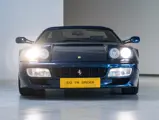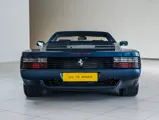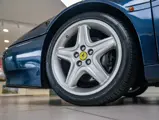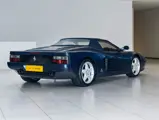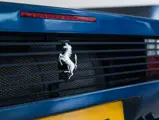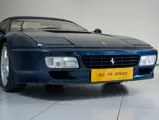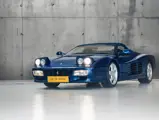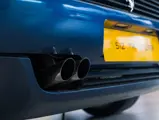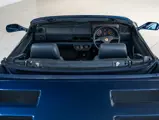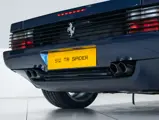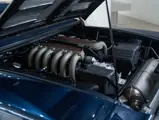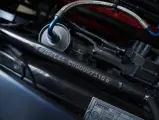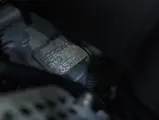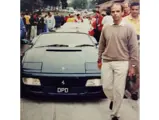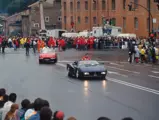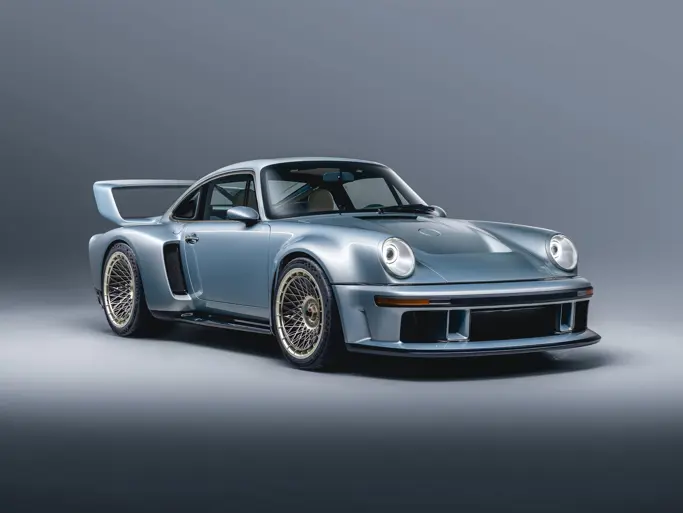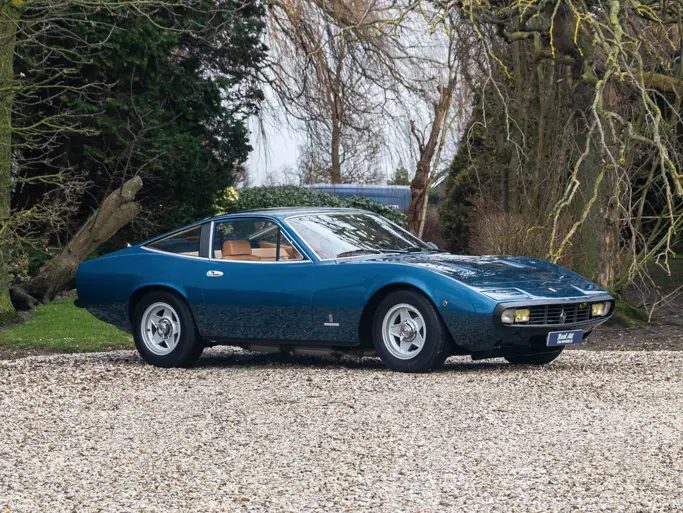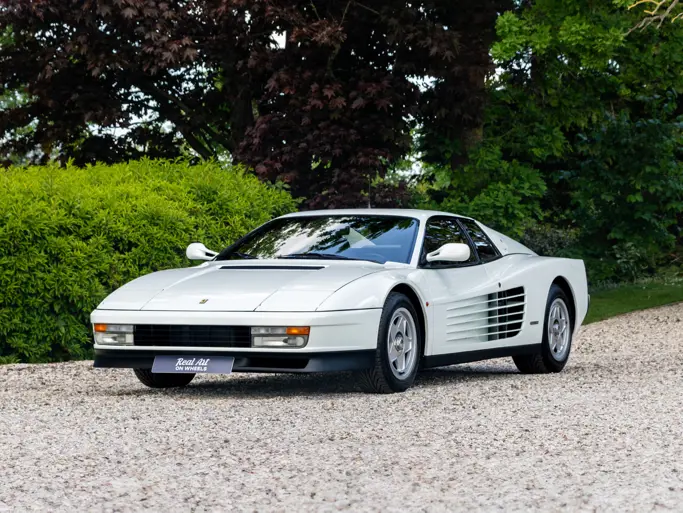
1993 Ferrari 512 TR Spider
{{lr.item.text}}
£2,226,875 GBP | Sold
Offered from The Factory Fresh Collection
{{bidding.lot.reserveStatusFormatted}}
- Offered from The Factory Fresh Collection
- One of three Ferrari 512 TR Spiders built by Ferrari in 1993
- The only 512 TR Spider to leave the factory with the stunning Blu Cobalto exterior and Blu Scuro Connolly leather interior
- One owner from new, with just 570 kilometres on the odometer
- Powered by its matching-numbers 4.9-litre flat-12 engine
- Exhibited at the 50th Anniversary of Ferrari in 1997
Please also note, on receipt of a Vehicle Production Data sheet from Ferrari, this car was found to have been first delivered in June 1993, contrary to the later dates depicted in the printed catalogue.
Arguably Ferrari’s hit car of the 1980s, the Testarossa was approaching its sixth year of production in 1990 and Maranello’s design team sought to update the iconic model for the coming decade. Returning to numeric nomenclature, its successor was dubbed the “Ferrari 512 TR”, with “5” representing the (rounded up) cubic capacity of the engine in litres, “12” the number of cylinders, and “TR” standing for Testarossa. The 512 TR shared many similarities with its predecessor, but was expertly tweaked by Ferrari both in terms of styling and engineering.
The nose and tail of the car were brought closer to the ground, with sail panel buttresses now plain and flowing directly to the roof. The nose bore a resemblance to the 348 that had been introduced in 1989, and the grille had a Cavallino Rampante affixed to its centre. At the rear, the engine lid featured a new louvred design, while the newly designed 18-inch alloy wheels were a modern take on the Ferrari five-spoke pattern. Staggered, they increased the front track while reducing the rear in comparison to the Testarossa. They were 2-inches larger, a necessity due to the fitment of ventilated cross-drilled brake discs clamped by four-piston callipers. Inside the cabin, a focus on increased comfort and ergonomics led to a redesign; the seats now featured pleated leather, much like those found in the Ferrari 348.
Underneath the Pininfarina body, the chassis was lowered to reduce the centre of gravity and roll axis. Further to this, Ferrari dropped the engine and gearbox by an additional 30 millimetres. The suspension remained similar to the Testarossa, though reconfigured to accommodate the larger diameter road wheels. But most of the real engineering advancements were found under the rear deck. With displacement remaining at 4,943 cc, the Tipo 113 engine fitted to the 512 TR was denoted as the “G” variant, offering performance gains through the use of high compression pistons that raised the compression ratio from 9.3:1 to 10:1. At the top end, the cylinder head porting was revised and larger valves were fitted along with a redesigned intake plenum. All of these changes, combined with a new Bosch Motronic M2.7 ignition and fuel injection system ultimately gave the Tipo 113G an additional 38 horsepower over of the 113F found in Testarossas. The five-speed manual gearbox remained the same, as did the top speed of 195 mph, but the driving experience was much improved and the time to 60 mph reduced to just 4.8 seconds. Torque figures for the 512 TR were now 362 pound-feet at 5,550 rpm.
Spearheaded in 1990 by Alfred Tan of Hong Seh Motors—Ferrari’s official Singaporean dealership—Pininfarina built a handful of ‘Special Production’ Testarossa Spiders for the Brunei Royal Family. Tan, a lifelong Ferrari enthusiast with strong ties to Ferrari, the firm’s preferred coachbuilder, Pininfarina, and the Brunei Royal Family, helped to create and run the Testarossa Spider project. In 1993, Ferrari built three units of the 512 TR Spider and offered two units to Alfred Tan, which he bought. One was sold to a French CEO while this stunning example, finished in Blu Cobalto, was retained. Inside, Maranello’s expert trimmers covered the seats with Connolly leather dyed in the stunning colour of Blu Scuro, complemented by Blu carpet. The navy blue convertible roof further supported the all-blue colour scheme. Chassis 97310 was the only 512 TR Spider to leave the factory with Blu Cobalto paintwork.
Having taken delivery of his Ferrari 512 TR Spider, Tan hardly drove the car, always keeping it at his dealership or in dry storage. As a result of such frugal use, today the odometer shows just 570 kilometres at the time of cataloguing. The Blu Cobalto exterior presents beautifully, highlighting the care given to this extremely special Ferrari over the past 29 years. Inside, the Blu Scuro leather interior reflects the impressively low odometer reading. As expected, this example retains its matching numbers 4.9-litre flat-12 engine and gearbox.
In 1997 Mr Tan was invited by Ferrari to display chassis 97310 at the 50th Anniversary of Ferrari in Rome. This 512 TR Spider was exhibited there and photographs and videos of the car can be seen in the digital history file.
Chassis 97310 arguably presents the only opportunity to own a special limited production Spider variant of the Ferrari 512 TR, with just three built by the factory and the other two not in circulation. Owned and cared for by the man who helped create such a rare beauty, this Blu Cobalto example would be the centrepiece of any aficionado’s collection, and is sure to draw attention wherever it goes, be it the concours lawns or open roads.




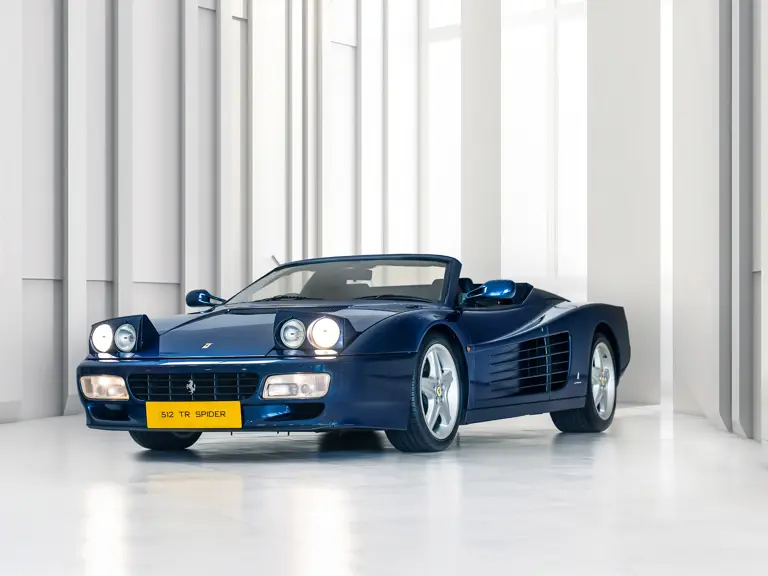
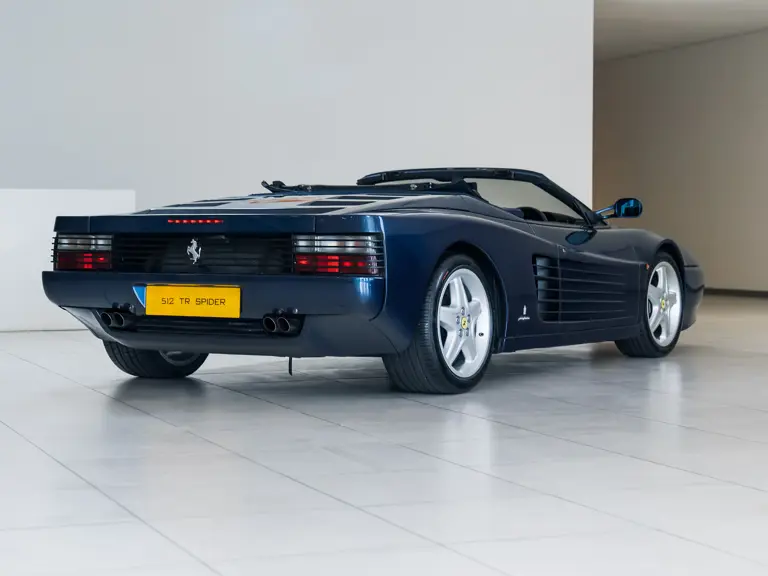
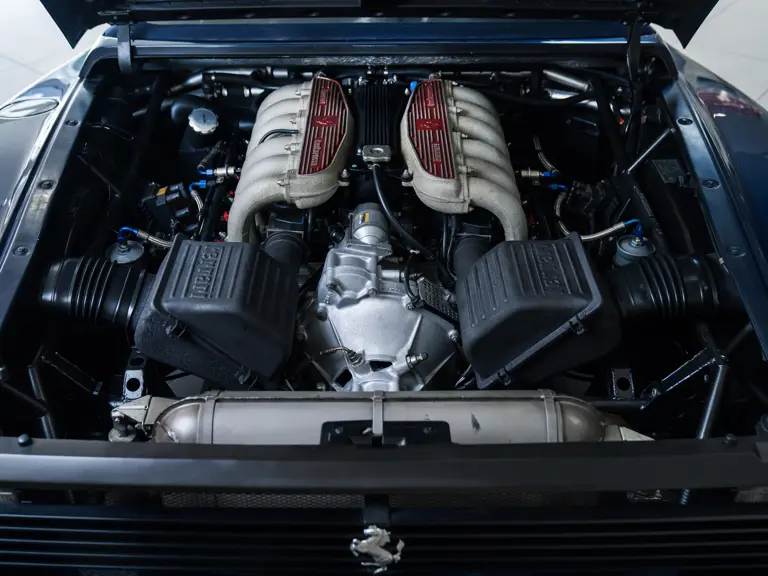
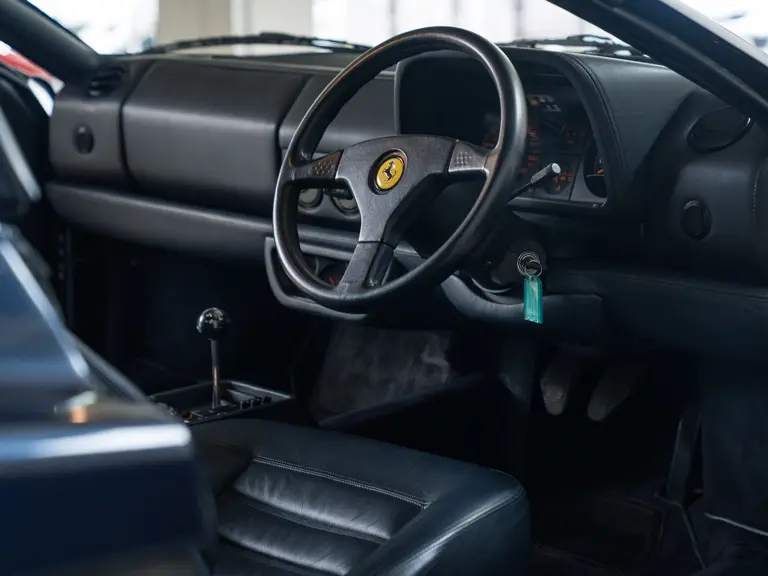
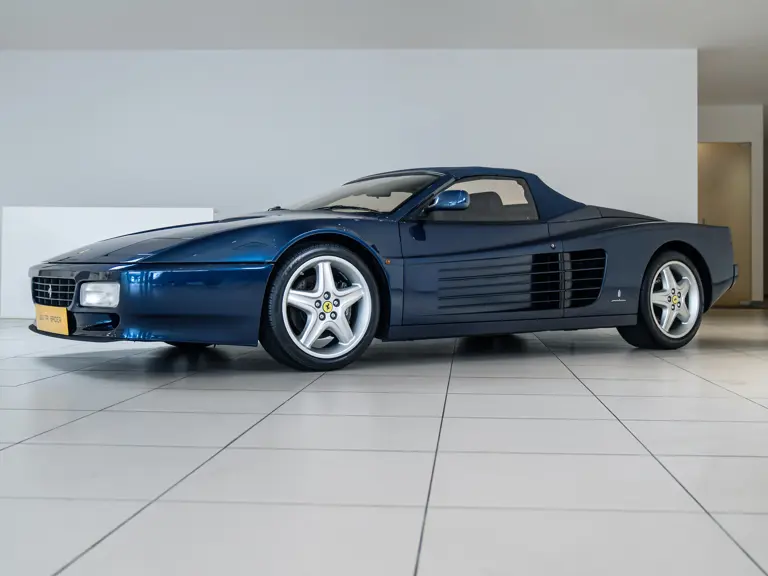
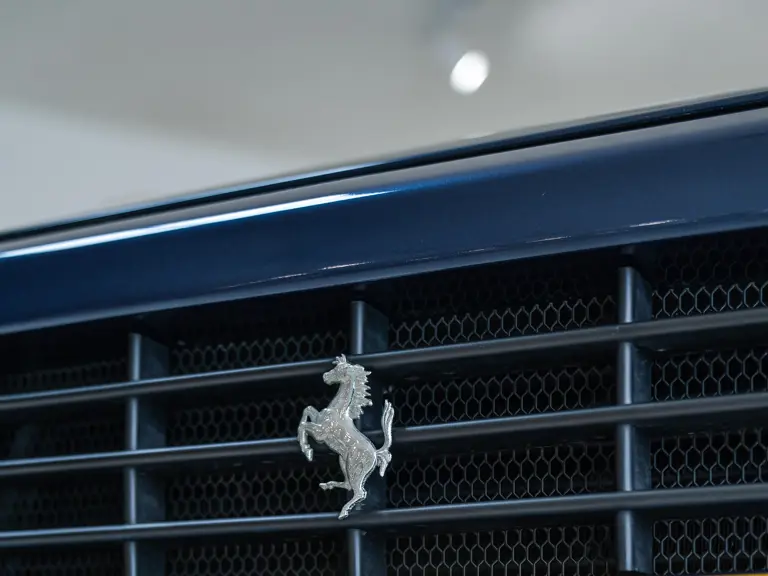

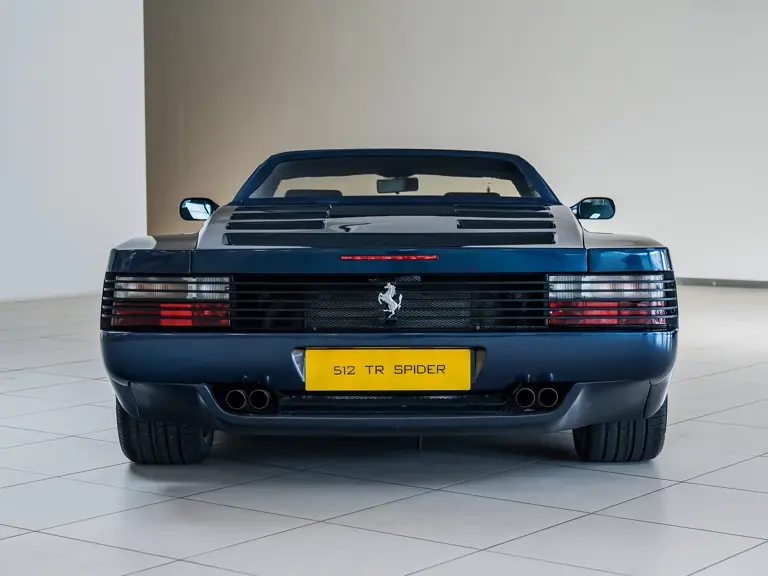
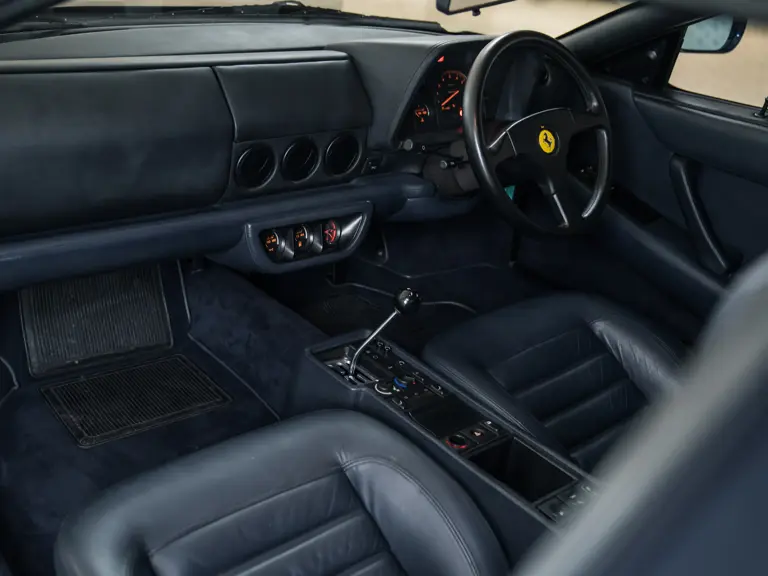
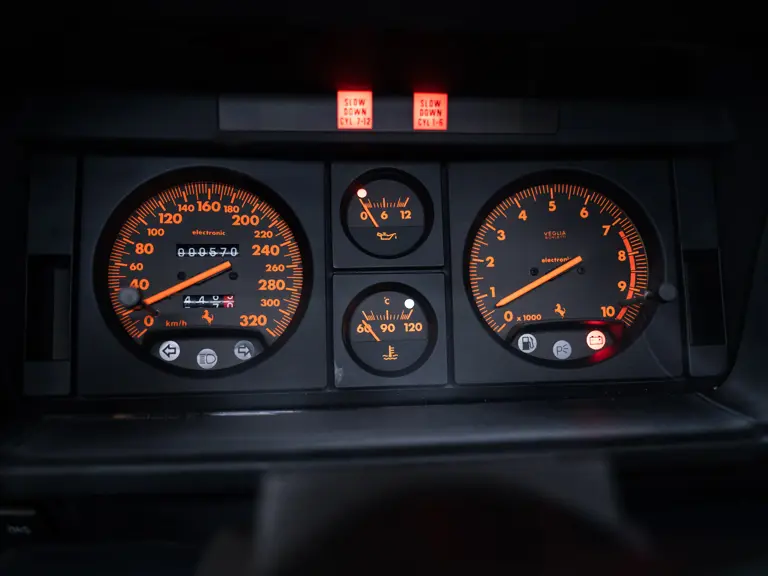
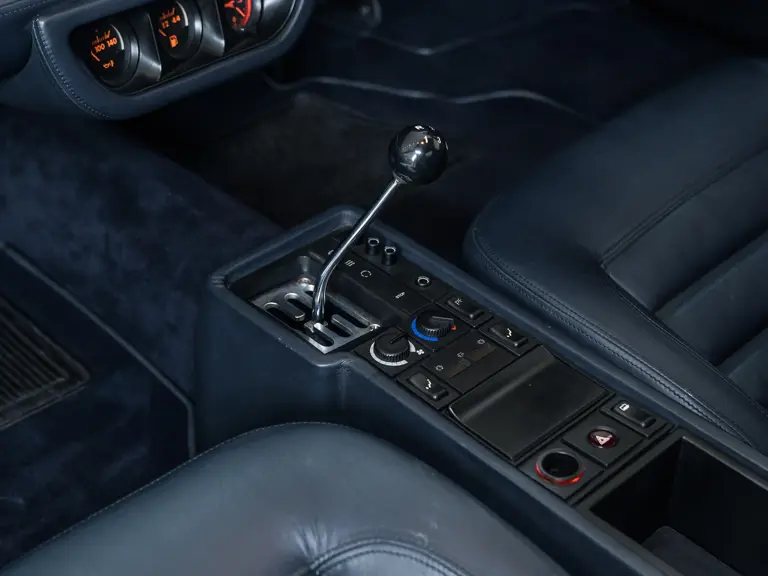
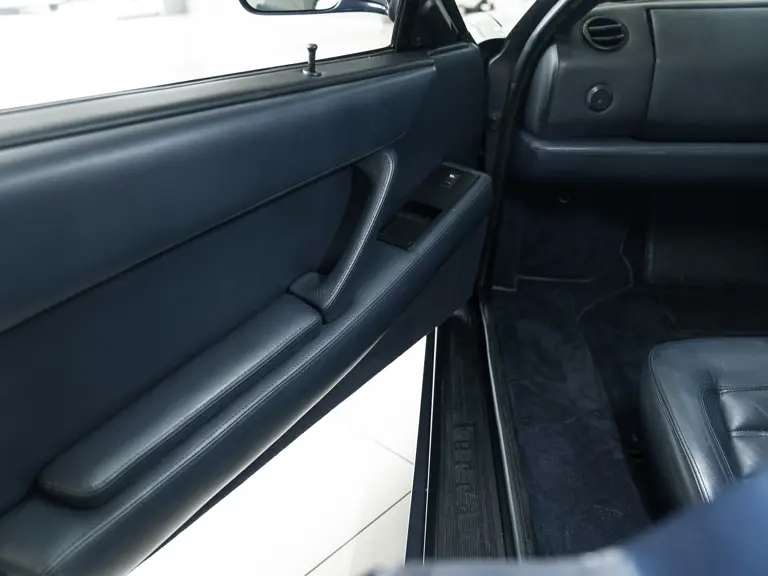
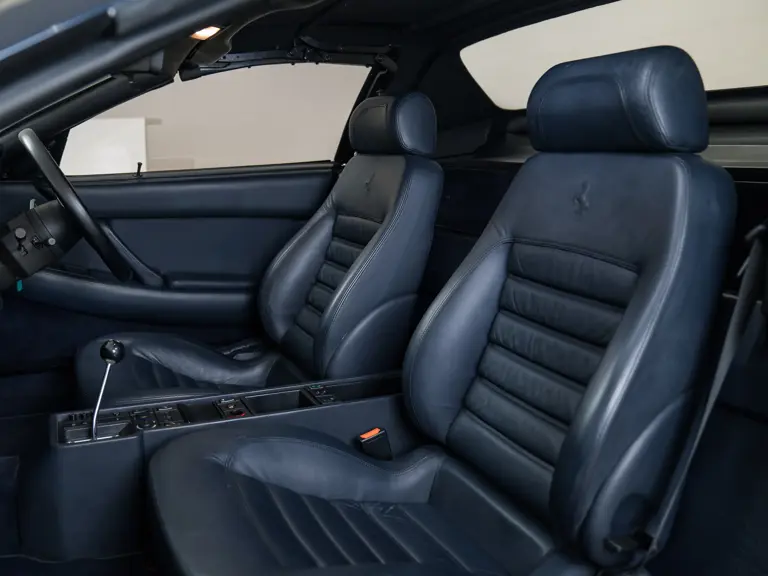
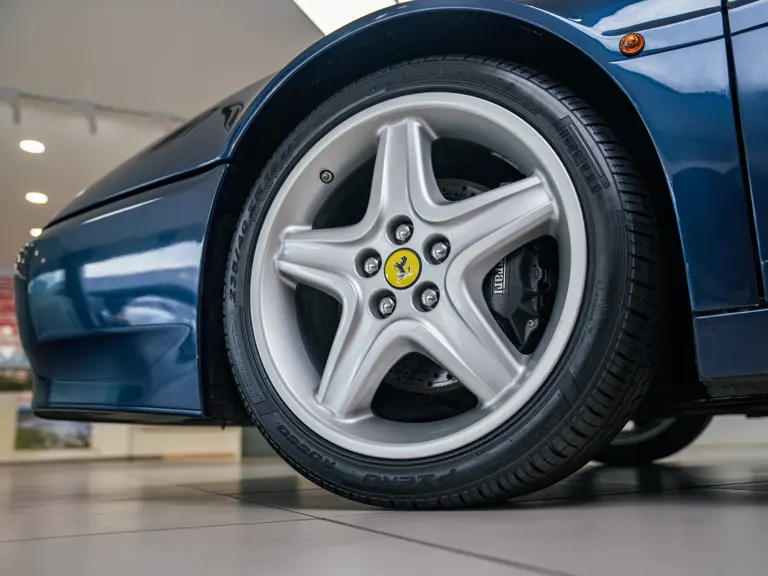
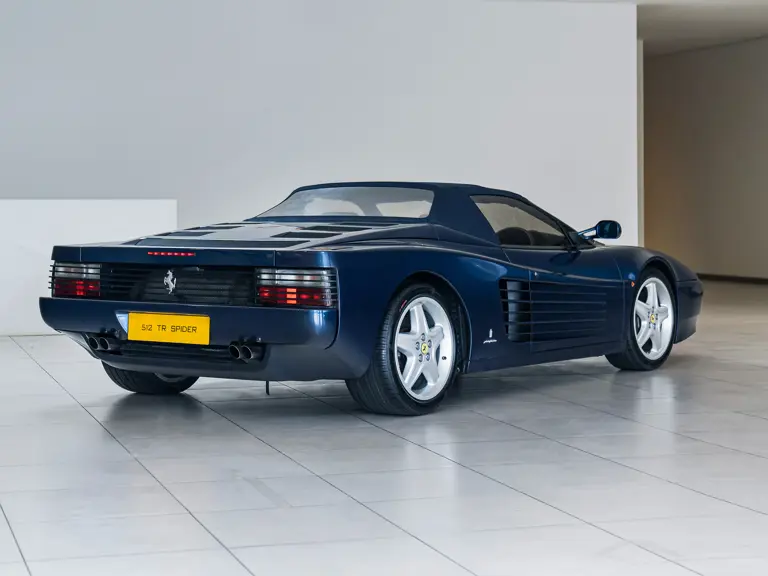
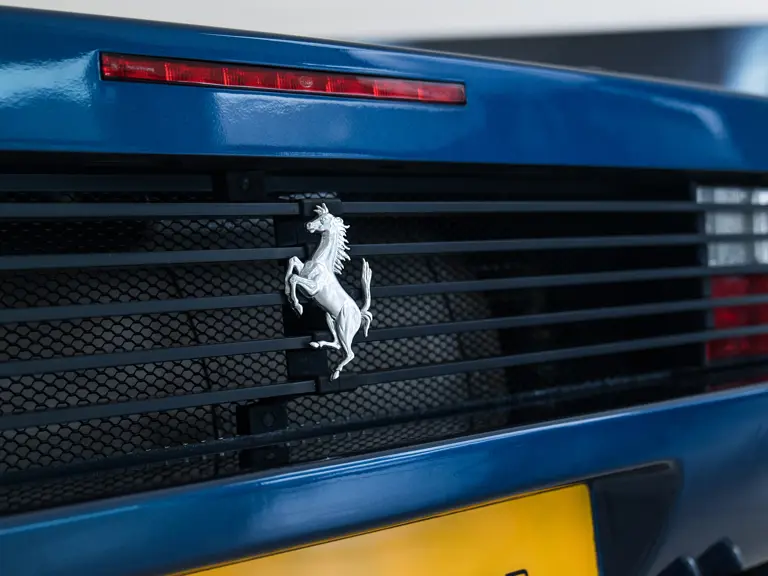
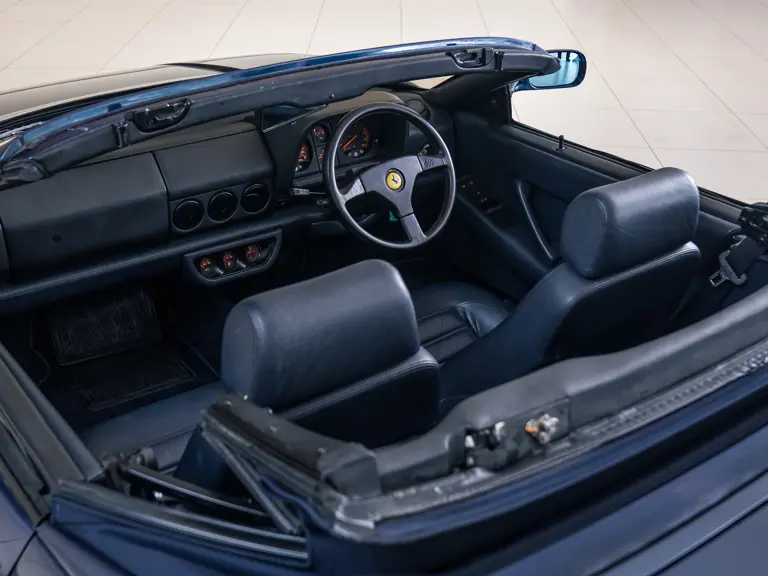
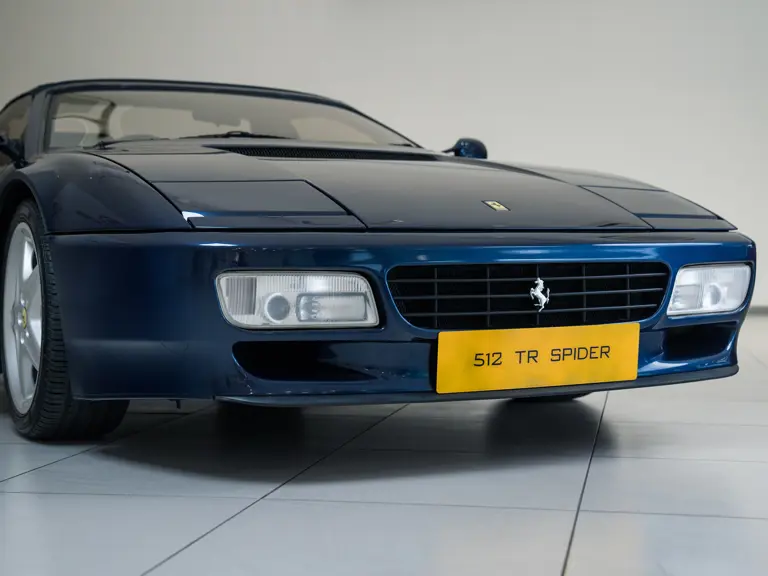
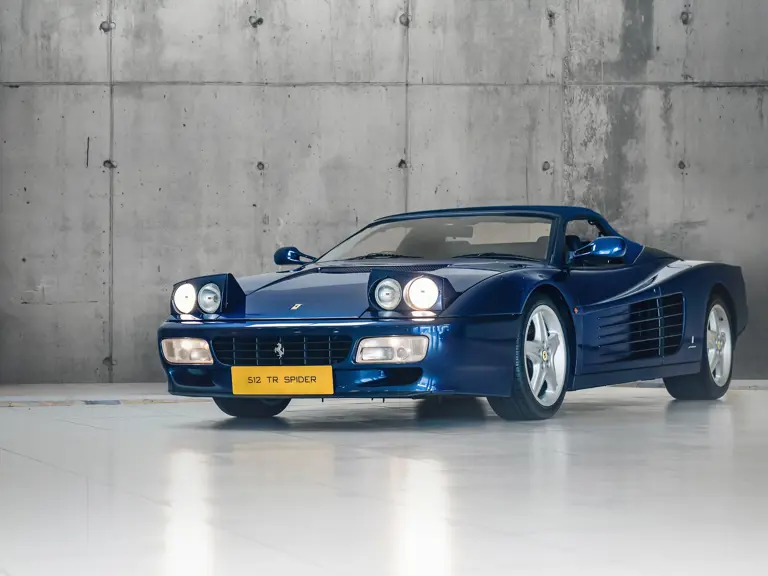
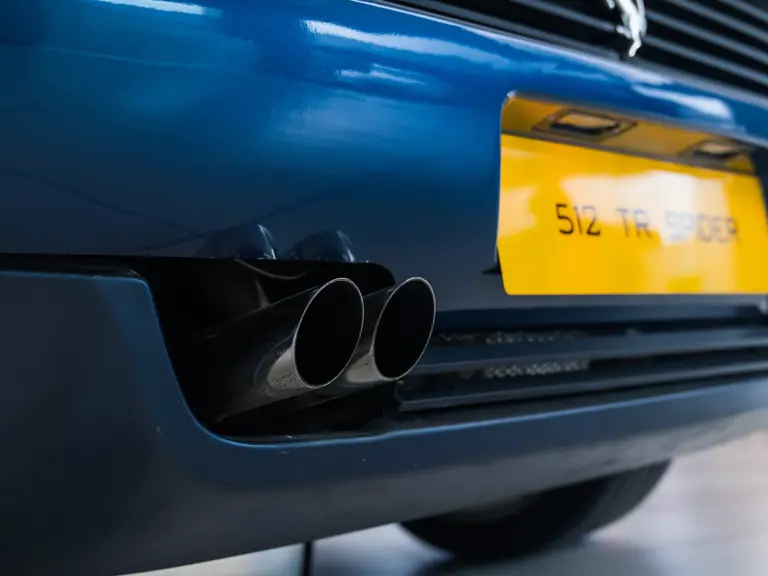
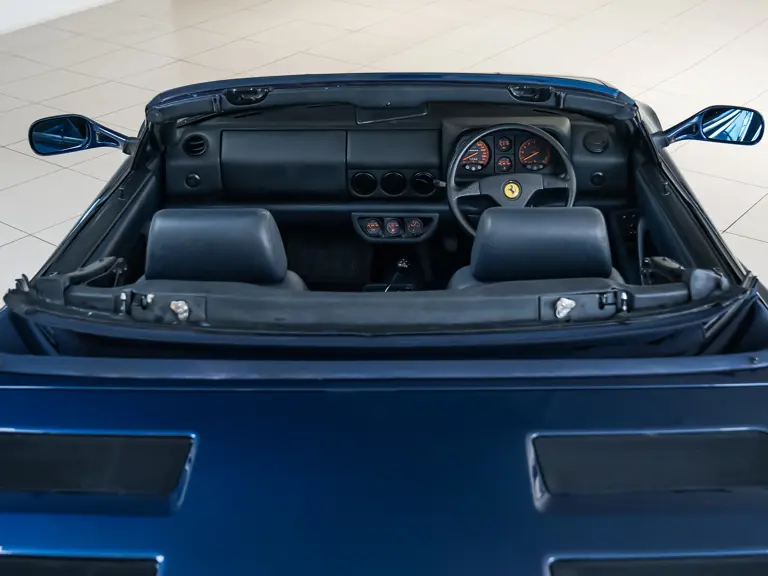
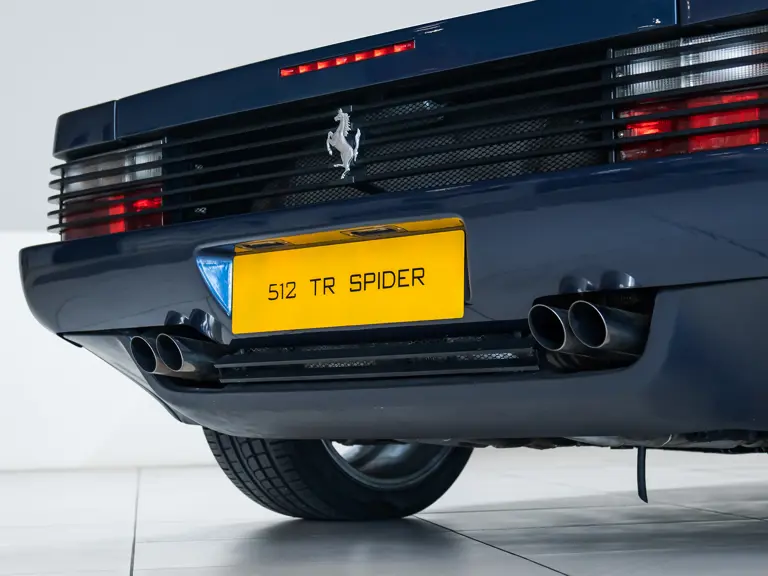
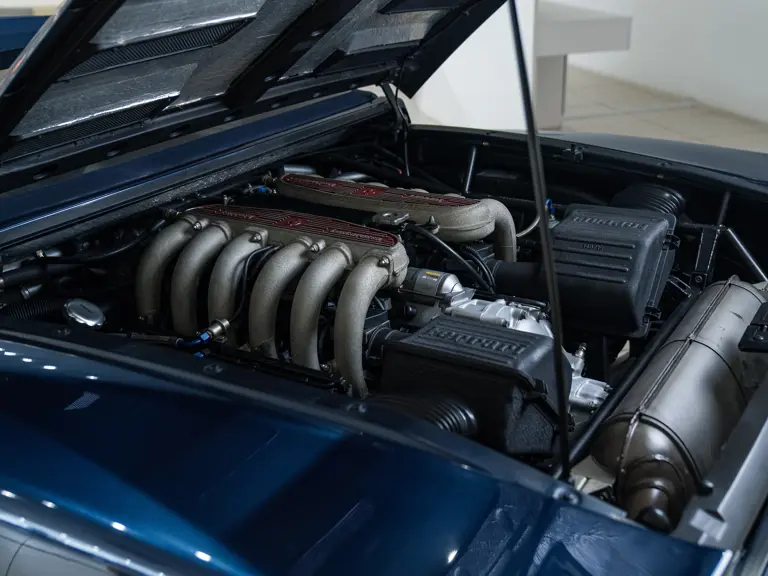
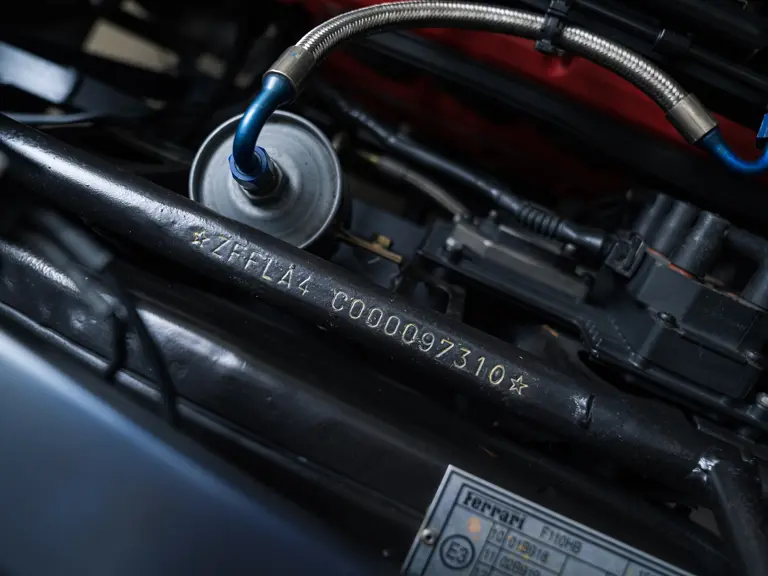
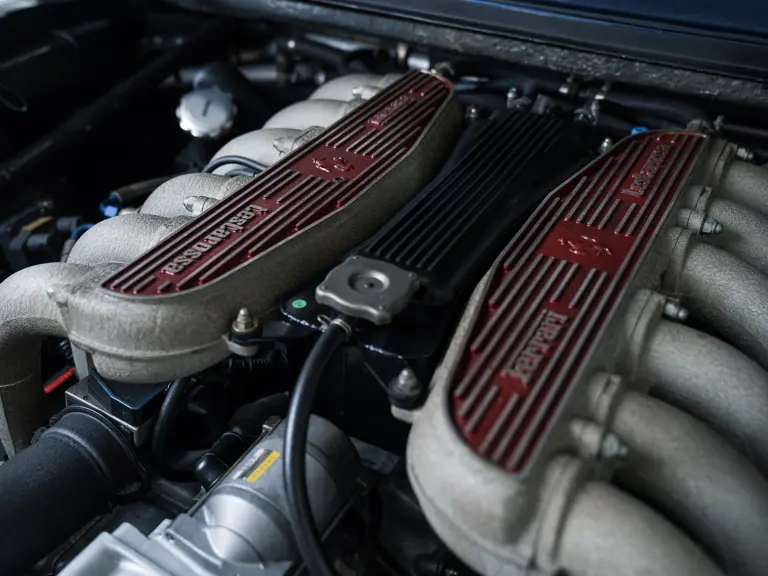
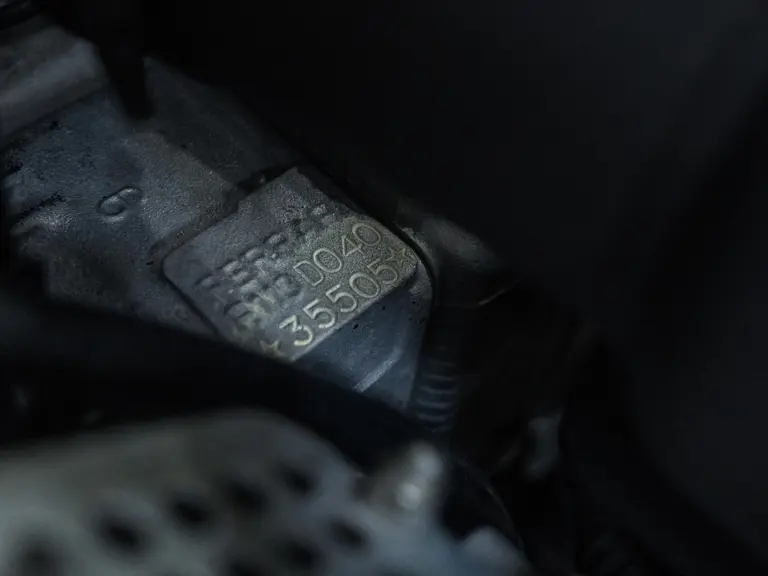
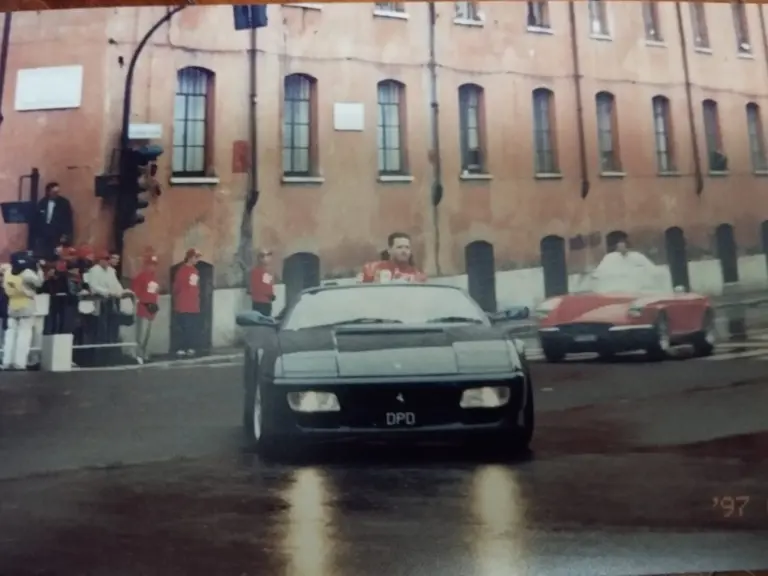
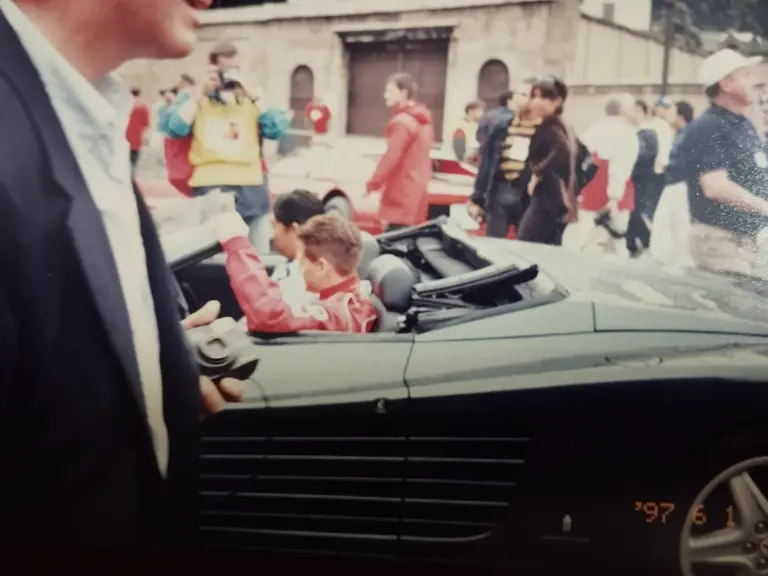
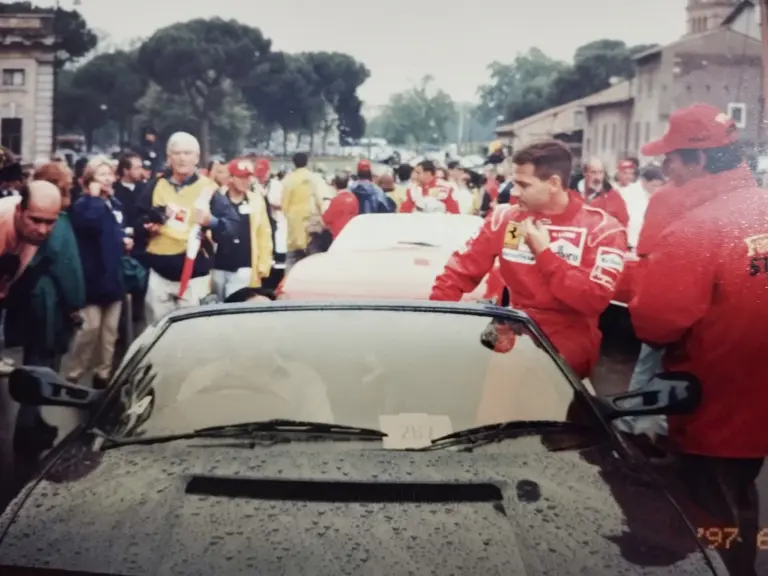
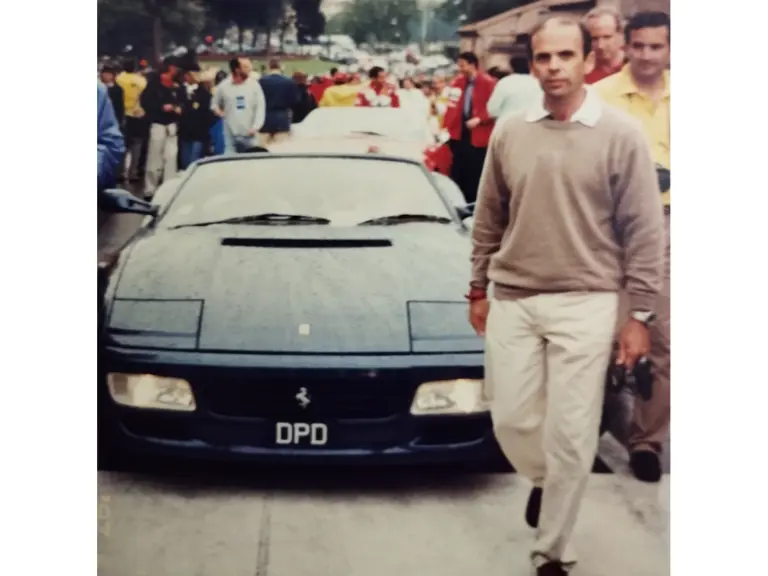
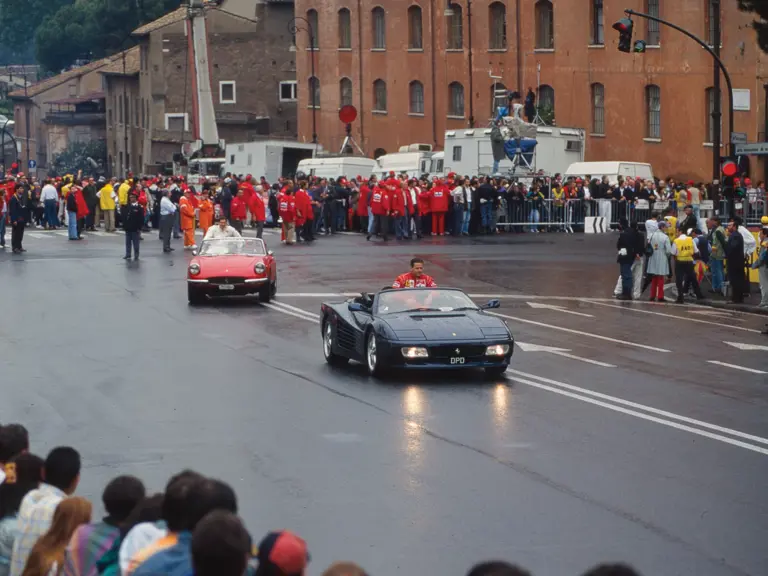
 | London, United Kingdom
| London, United Kingdom
